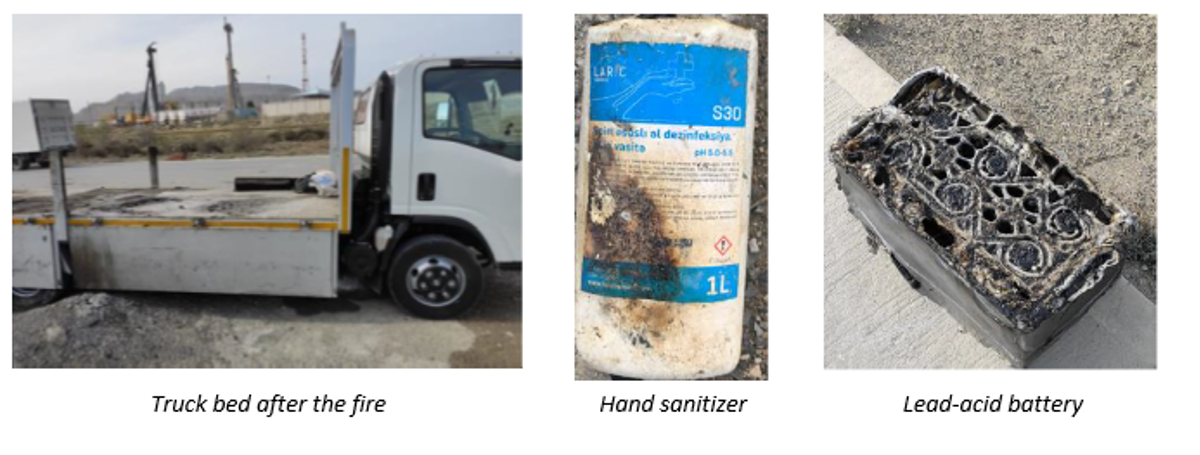Cargo Ignited on Truck Bed During Transportation
- Safety Flash
- Published on 24 July 2020
- Generated on 12 July 2025
- IMCA SF 22/20
- 2 minute read
Jump to:
What happened?
There was a fire in the cargo on the back of a truck whilst moving materials from the warehouse to the vessel. Whilst in transit, the driver observed flames coming from the truck bed.
He stopped the vehicle and used the vehicle fire extinguisher to tackle the fire. He was successful, despite very strong winds, and then returned to the warehouse safely. No injuries to personnel, no damage to truck.
What were the causes? What went wrong?
Investigation did not reveal the exact source of ignition. There were nevertheless a number of concerns identified after interviews and review of CCTV video records:
- The transported cargo appeared to have not been secured or belted in the truck bed.
- Bottles of hand sanitiser, known to be a petroleum-based flammable material, formed part of the load. Prior to loading, there was no check made of the integrity of the bottles of hand sanitiser to see if there are any damage, leakage or container lids not properly closed. [NB this incident occurred in a hot country.]
- There was no segregation nor proper packaging of transported materials. Spirit-containing sanitisers were stored next to lead-acid batteries and other equipment with metal elements (chairs and spare parts etc.) It was considered that loose metal parts could have potentially damaged the bottles of hand sanitiser, causing leakage of flammable material, or, interact with batteries causing sparks.
Actions
- All transported loads should be packed & secured properly.
- The integrity of the load should be checked to ensure no damage, leakage or container lids not properly closed.
- Any internal and external potential for fire or sparks should be evaluated and eliminated before the journey.

Related Safety Flashes
-
IMCA SF 28/18
18 December 2018
-
-
IMCA SF 14/18
9 July 2018
-
-
IMCA SF 09/18
24 April 2018
-
-
IMCA SF 09/15
23 June 2015
IMCA Safety Flashes summarise key safety matters and incidents, allowing lessons to be more easily learnt for the benefit of the entire offshore industry.
The effectiveness of the IMCA Safety Flash system depends on the industry sharing information and so avoiding repeat incidents. Incidents are classified according to IOGP's Life Saving Rules.
All information is anonymised or sanitised, as appropriate, and warnings for graphic content included where possible.
IMCA makes every effort to ensure both the accuracy and reliability of the information shared, but is not be liable for any guidance and/or recommendation and/or statement herein contained.
The information contained in this document does not fulfil or replace any individual's or Member's legal, regulatory or other duties or obligations in respect of their operations. Individuals and Members remain solely responsible for the safe, lawful and proper conduct of their operations.
Share your safety incidents with IMCA online. Sign-up to receive Safety Flashes straight to your email.
